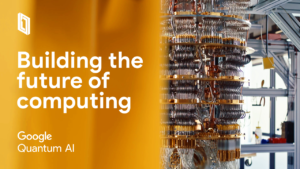Colocation: Harnessing the Potential of AI

The Transformation of Colocation Data Centers in the AI Era
The data center industry is experiencing significant changes, mainly due to the rapid growth of artificial intelligence (AI) and its increasing need for computational resources. AI touches myriad areas—from healthcare and finance to transportation and entertainment—making robust and flexible data infrastructure essential. Colocation data centers are pivotal in this shift, emerging as vital support systems that enable organizations to tap into AI’s vast capabilities.
The Role of Colocation Data Centers
Colocation data centers provide businesses with a secure environment to host their crucial IT infrastructure. By partnering with specialized providers, companies can outsource their data center needs, allowing them to concentrate on their main operations. These facilities offer cutting-edge technology, dual power supply systems, optimal cooling solutions, and continuous monitoring and maintenance. This approach enables businesses to maximize performance while minimizing risks.
More Than Just Housing
The significance of colocation data centers extends beyond simply providing space for servers. They have become central hubs for the AI revolution, allowing companies to utilize advanced technologies without the high costs and complexities involved in developing and managing their own data centers.
Meeting AI’s Demand for Power
A fundamental driver for the growth of colocation centers in the AI space is the relentless demand for computing power. Training sophisticated AI models, such as large language and deep learning networks, requires vast amounts of processing capabilities and memory resources. For example, the OpenAI GPT-3 model, known for its 175 billion parameters, needed the equivalent of thousands of years of computing on a single CPU for training.
Integration with Cloud and Edge Computing
The emergence of cloud computing and AI-as-a-Service solutions has further emphasized the importance of colocation data centers. As more companies adopt cloud-based AI, having robust and secure data centers becomes a necessity. Additionally, innovations in Edge computing and the Internet of Things (IoT) present new challenges and opportunities. By deploying AI applications closer to data sources, organizations can minimize latency and make quicker decisions.
Environmental Impact and Energy Efficiency
As the AI landscape grows, it is crucial to address the environmental implications of data centers. The significant computational power required for AI tasks translates to substantial energy use and carbon emissions. Estimates suggest that data centers currently account for about one percent of global electricity consumption, a figure expected to increase with the rise of AI technologies.
Importance of Security and Compliance
In the AI-era, ensuring robust security and compliance is vital for colocation data centers. As AI systems manage sensitive information, implementing strong cybersecurity measures and complying with data privacy regulations is essential. According to a Markets and Markets report, the global cybersecurity market is anticipated to grow to $345.4 billion by 2026, driven by the heightened need for securing AI systems and protecting data.
The Evolving Future of Colocation and AI
The partnership between colocation data centers and AI is poised to strengthen in the future. As AI technologies progress, the demand for specialized hardware, such as graphics processing units (GPUs) and tensor processing units (TPUs), will rise significantly. This evolving relationship signifies more than just a technological transition; it represents a fundamental shift in every aspect of our lives.
Colocation data centers stand at the forefront of this transformation, playing a critical role in providing the infrastructure and services necessary to unlock AI’s full potential. By offering scalable computing power, strong security protocols, and sustainable operations, these providers enable organizations to navigate the challenges of integrating AI, fostering innovation, and exploring new possibilities.






